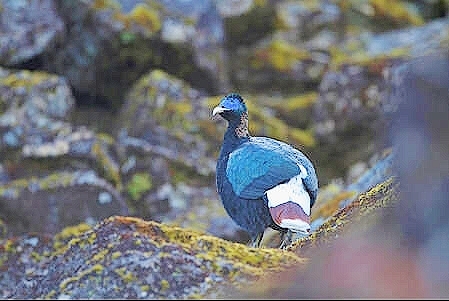ERROR : Server Busy(-1105)
ERROR : Server Busy(-1105)
Sclater's monal (Lophophorus sclateri)
The Sclater’s monal, or the crestless monal, is a large pheasant endemic to the eastern Himalayas. As other monals (the Himalayan monal and the Chinese monal), the male is a beautiful colourful bird while the female is a brownish drab bird. But, Sclater’s monals are the only monal species that have no obvious crest.
The male Sclater’s monal boosts iridescent purplish-green upperparts, and short and curly metallic green crown feathers. He also has a copper neck, a purplish-black throat and blue facial skin. Male Sclater’s monal’s rump is white and there is a broad chestnut band on the tail, tipped in white. The tail is entirely white in the newly discovered subspecies from western Arunachal Pradesh in India. The female Sclater’s monal is brown with fine barring of dark brown and buff on the breast. She is darker than other female monals, with a blue patch around her eyes and a broader white tail tip.
The Sclater’s monal is a solitary bird during the breeding season (spring) but gregarious in winter. The female usually lays two or three eggs and incubates them for almost 28 days. |

